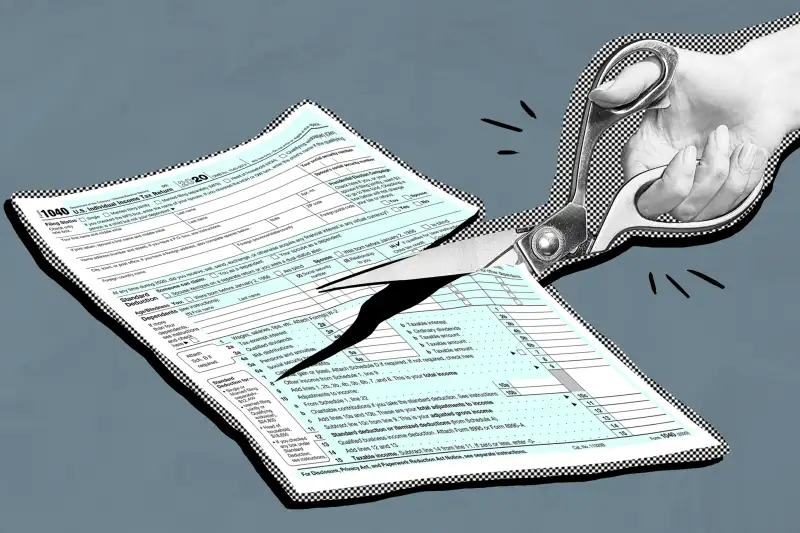Nearly Two-Thirds of American Households Didn't Pay Federal Income Tax Last Year

Last year, nearly 107 million households paid no federal income tax, according to an estimate from the nonpartisan Tax Policy Center.
No, all of those people — representing 61% of households in America — were not committing tax fraud. They just didn't owe that particular type of tax in their 2020 returns.
This is a huge increase: In 2019, nearly 76 million households (44%) didn't pay federal income taxes, the center estimates. Yet there are plenty of good explanations for the recent rise in people not paying federal income taxes, and there's also reason to believe the rise was a temporary one.
In 2020, COVID-19 put a huge dent in household incomes, with millions of people losing their jobs. Unemployment hit low-wage workers the hardest, with 80% of job losses in 2020 coming from workers in the bottom 25% of wage distribution, according to the Economic Policy Institute. Low-wage workers who had a lower tax liability before the pandemic hit may have seen their federal income tax bill completely wiped out when their income dropped.
Meanwhile, the stimulus checks issued by the government acted as refundable tax credits, which significantly lowered many taxpayers' federal income taxes. As a result, some households that usually paid these income taxes owed nothing in 2020. Families may have also seen their federal income tax liability disappear when other tax credits, like the Child Tax Credit (CTC), Earned Income Tax Credit (EITC) and Child and Dependent Care Tax Credit (CDCTC), were increased in 2021.
The number of people who didn't pay federal income tax last year may seem shockingly high — especially if you remember the disparaging comments Sen. Mitt Romney, R-Ut., made about the 47% of Americans he said were not paying federal income taxes when he ran for president back in 2012. But keep in mind that people pay all kinds of taxes.
The number of households that didn't pay 2020 payroll or income taxes significantly jumped, but about four out of five households did pay at least one of these two types of taxes, the Urban-Brookings Tax Policy Center estimates. And nearly all households paid other taxes, like sales taxes, property taxes or state income taxes.
Plus, the increase in the number of households who didn't pay federal income tax likely won't stick. The unemployed are heading back to work and looking at potential raises, which will increase household incomes. There don't appear to be any more stimulus checks heading our way, and the refundable tax credit increases that we saw last year are set to expire at the end of 2021. Meanwhile, the 2017 Tax Cuts and Jobs Act, which included individual income tax cuts, is expected to come to an end in 2025. (Of course, these expiration dates could change with new legislation. President Joe Biden has already said he wants to extend the CTC expansion beyond the end of the year.)
The Tax Policy Center estimates that the number of households not paying federal income tax will drop to 102 million (57% of households) for the 2021 tax filing season, and down to 75 million (just below 42%) next year. By the time 2026 rolls around, the center estimates that number will drop to about 40%, which is slightly lower than it's been for much of the last decade.
More from Money:
Families Are Spending Child Tax Credit Payments as Soon as They Get the Money, New Poll Shows
Americans Say They're Spending an Extra $700 a Month This Summer
